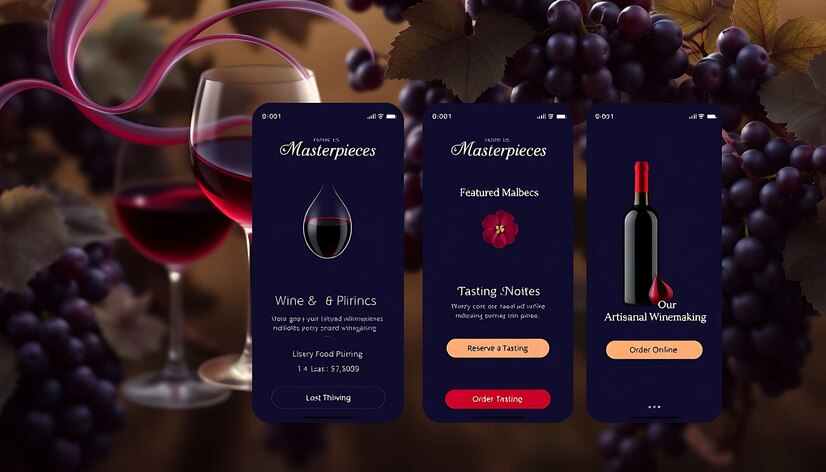In recent years, customers’ appetite for immediate access to the required goods and services has grown rapidly, and alcohol and wine delivery services are no exception. As clients seek value and convenience in shopping, alcohol delivery apps have become an effective business model. Companies like Drizly have set benchmarks inside the enterprise, inspiring entrepreneurs to recall Drizly clone app development to seize a share of this growing marketplace. This article explores critical insights into wine on-demand app development, alcohol delivery app development, and liquor delivery app development and highlights what customers assume from these structures.
Understanding the Market for Alcohol and Wine On-Demand Apps
The market for alcohol and wine on-demand apps is expanding swiftly. The demand for convenience, a wide variety of products, and quick delivery options will likely drive a significant increase in the global online alcohol market by 2024. Factors contributing to this surge include a growing choice for online purchasing, multiplied smartphone penetration, and converting lifestyles that prioritize comfort.
Information on marketplace dynamics is important for businesses considering improving their wine on-demand app. This entails knowing the target audience, figuring out the competition, and learning regulations associated with the sale and delivery of alcohol in diverse regions. Additionally, organizations want to apprehend their target clients’ particular needs and choices to offer a tailored experience.
Key Features Users Expect in Alcohol and Wine Delivery Apps
Regarding alcohol delivery app development, users anticipate plenty of capabilities that ensure a clean and enjoyable experience. Here are some critical capabilities that can set a liquor delivery app aside:
a. User-Friendly Interface
A simple, intuitive interface is an essential requirement for any hit app. Users must be able to navigate the app effortlessly, look for their favoured beverages, and place orders without any hassle. Clear product categorization, a sturdy search function, and easy checkout alternatives are critical to enhancing user enjoyment.
B. Extensive Product Catalog
Customers prefer apps that provide various alcohol, wine, and liquor options from exceptional brands, sorts, and rate ranges. A full product catalogue with distinctive descriptions, photos, and purchaser critiques facilitates users’ knowledgeable selections. Integrating functions like personalized recommendations based on personal behaviour beautifies the purchasing experience.
C. Seamless Payment Integration
Security and convenience are paramount when choosing fee alternatives. Offering multiple payment gateways such as credit score/debit playing cards, virtual wallets, and coins-on-delivery can cater to distinctive user preferences. Ensuring stable transactions with encryption and fraud detection measures is crucial for constructing agreements.
D. Real-Time Order Tracking
Real-time tracking is a must-have feature for any on-demand delivery app. Users recognize the reputation of their order from the moment it’s miles positioned till it reaches their doorstep. Integrating GPS monitoring, push notifications, and predicted delivery instances can enhance transparency and patron pleasure.
E. Age Verification and Compliance
Since alcohol is a regulated product, proper age verification during registration and checkout is vital. Compliance with neighbourhood and federal rules is necessary; failure to accomplish that can result in felony troubles and penalties. Adopting dependable age verification mechanisms and adhering to delivery suggestions are essential to fulfilling any liquor delivery app development project.
F. Personalized Offers and Discounts
Loyalty programs, reductions, and promotional offers effectively retain customers and increase sales. Offering personalized discounts based on purchase records, seasonal offers, and referral bonuses can encourage repeat business. Including a dedicated phase for modern-day offers and discounts inside the app can entice additional customers.
Technology Stack for Developing an Alcohol Delivery App
Selecting the right technology stack is essential in improving the alcohol delivery app. The desire for the era impacts the app’s performance, scalability, and safety. Here is a typical tech stack for constructing a sturdy alcohol delivery app:
- Frontend Development: Use React Native, Flutter, or Swift for iOS and Kotlin for Android to ensure a seamless and responsive consumer experience.
- Backend Development: Use Node.Js, Django, or Ruby on Rails to handle server-facet operations, databases, and APIs.
- Database: MongoDB, MySQL, or PostgreSQL for efficient record control.
- Payment Gateways: Integration with secure price gateways like Stripe, PayPal, or Braintree for smooth and secure transactions.
- Cloud Storage: AWS, Google Cloud, or Azure for scalable storage and cloud computing wishes.
- Push Notifications: Firebase Cloud Messaging (FCM) or Apple Push Notification Service (APNS) for actual-time signals and notifications.
Choosing the Right Drizly Clone App Development Company
For businesses looking to enter the alcohol delivery market, partnering with a Drizly Clone App Development Company can be a clever circulate. Such corporations focus on developing prepared-made answers that can be custom-designed to shape specific business desires. Here are some factors to don’t forget when deciding on a development partner:
- Expertise and Experience: Look for an enterprise with a strong music file on demand for app development, especially in the alcohol and wine delivery area of interest.
- Customization Capabilities: The ability to customize functions, layout, and functionalities according to enterprise necessities is essential.
- Post-Launch Support: Continuous support and maintenance are crucial for the app’s smooth operation. Ensure the development employer offers submit-launch services.
- Regulatory Compliance: The development company needs to be well-versed in the felony and compliance necessities of alcohol delivery in specific areas.
Challenges in Alcohol and Wine On-Demand App Development
Developing a successful wine-on-demand or liquor delivery app comes with its challenges. Some commonplace demanding situations encompass:
a. Regulatory Hurdles
Different international locations, states, and regions have their regulations for the sale and delivery of alcohol. Navigating those regulations can be complicated and requires thorough research and compliance to avoid legal headaches.
B. Ensuring Data Security
Handling sensitive records, including payment statistics, requires strong security measures. Ensuring records’ privacy and safety against breaches is a significant challenge that should be addressed with superior encryption and security protocols.
C. Managing Logistics
Efficient logistics management is crucial for timely deliveries. Collaborating with dependable delivery companions, optimizing delivery routes, and managing inventory is vital to successful delivery.
Conclusion
Developing an on-demand app for hot alcohol and wine requires a deep understanding of the marketplace, user expectations, and technological considerations. Companies can create a compelling app that meets purchaser needs by specializing in person-centric functions like a person-friendly interface, extensive product catalogue, seamless payment alternatives, actual-time order tracking, and regulatory compliance. Partnering with an experienced Drizly clone app development company can simplify the process, ensuring an easy journey from concept to release.
FAQs
1. What is the value of growing a wine on-demand for the app?
The wine on-demand app development costs vary depending on several elements, including the features’ complexity, the era stack selection, and the development crew’s location. The average cost can range from $20,000 to $100,000 or more.
2. What are the essential features of an alcohol delivery app?
Key functions for improving the alcohol delivery app encompass a user-friendly interface, an enormous product catalogue, seamless charge integration, real-time order monitoring, age verification, and personalized offers and reductions.
3. How can I ensure compliance with alcohol delivery rules?
Ensuring compliance with alcohol delivery guidelines requires understanding the precise laws and recommendations in each region in which you plan to operate. This includes proper age verification mechanisms, acquiring necessary licenses, and adhering to delivery recommendations.
4. Why must I select a Drizly Clone App Development Company?
Choosing a Drizly clone app development company can save time and resources, as these companies specialize in building ready-made answers that can be customized to fit your commercial enterprise desires. They also provide information in the specific area of interest of alcohol delivery, ensuring that the app complies with policies and is market-geared up.
5. What is the difference between liquor delivery app development and wine on-demand app development?
The primary distinction lies between the target audience and product services. While liquor delivery app development specializes in a wide range of alcoholic liquids, wine on-demand app development is an extra niche, targeting wine fans with a curated selection of wines. Both require comparable functions and technological issues but may include branding, advertising and marketing strategies, and product categorization.



